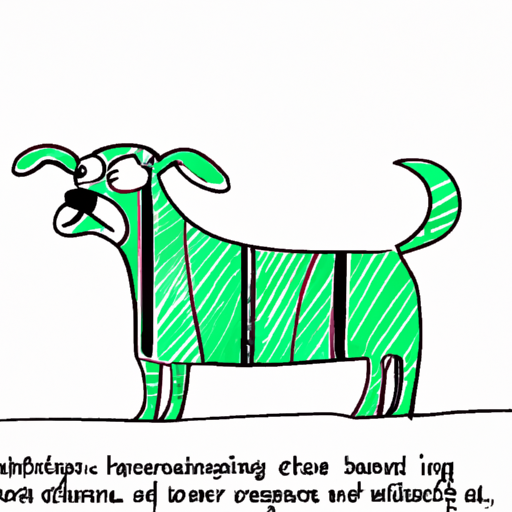Understanding the Basics of Your Dog’s Digestive System
First, let’s tackle the basics. Your furry friend’s digestive system, while similar to yours, has a few key differences that can contribute to the sometimes unpleasant odors you’re noticing. Dogs are primarily carnivorous, meaning their digestive systems are designed to process meat and bone. This results in a different kind of waste than what you might be used to, and yes, it can have a stronger smell.
A few key points about your dog’s digestive system:
- Dogs have a shorter digestive tract than humans, so food passes through more quickly.
- The bacteria in your dog’s gut are different from yours, which can lead to different smells.
- Dogs have anal glands that can emit a strong odor when they’re full or infected.
Common Causes of Smelly Dog Butts
Now, let’s delve into some of the common reasons why your dog’s behind might be a bit more aromatic than you’d like.
- Anal Glands: As mentioned above, dogs have anal glands that can become full and emit a strong odor. These glands can also become infected, which can further increase the smell.
- Parasites: Parasites like worms can cause a change in your dog’s stool, which can lead to an increase in smell.
- Diet: Certain foods can cause a change in your dog’s stool smell. This is especially true if your dog has a food allergy or intolerance.
- Health Issues: Certain health issues, like gastrointestinal problems, can increase the smell of your dog’s stool.
What You Can Do to Help
You’re not powerless in the face of your dog’s stinky butt. There are several steps you can take to help reduce the smell.
- Regular Vet Check-ups: Regular check-ups with your vet can help catch any health issues before they become a smelly problem.
- Healthy Diet: Feeding your dog a healthy diet can help keep their digestive system running smoothly and reduce the smell of their stool.
- Regular Grooming: Regular grooming, including cleaning your dog’s behind, can help reduce the smell.
How to Clean Your Dog’s Behind
If your dog’s behind is consistently smelly, you may need to start incorporating some cleaning into your grooming routine. Here’s a simple step-by-step:
- Gather your supplies: dog-friendly wipes or washcloth, dog-safe shampoo, and gloves.
- Lift your dog’s tail gently and clean the area with the wipes or damp washcloth.
- If the smell persists, you may need to use a small amount of dog-safe shampoo.
- Rinse thoroughly and dry.
| Step | Supplies | Instructions |
|---|---|---|
| 1 | Wipes/Gloves | Lift tail |
| 2 | Shampoo | Clean area |
| 3 | Rinse | Apply shampoo |
| 4 | Dry | Rinse/Dry |
Frequently Asked Questions
Why does my dog’s butt smell like fish?
This is likely due to their anal glands. The fluid in these glands can have a fishy smell.
Does my dog’s diet affect their stool smell?
Yes, a dog’s diet can greatly affect the smell of their stool. Certain foods, particularly those high in protein, can result in stronger smelling waste.
How often should I clean my dog’s behind?
This can vary based on your dog’s health and lifestyle, but a general rule of thumb is to clean their behind whenever you notice a strong smell.
Should I take my dog to the vet for a smelly butt?
If your dog’s butt consistently smells, or if the smell is accompanied by other symptoms (like discomfort or changes in stool), you should consult your vet.
Remember, your role as a caregiver means being attentive to all aspects of your dog’s health, even the less glamorous ones. By understanding why your dog’s butt might stink and what you can do about it, you’re helping to ensure their overall well-being.



